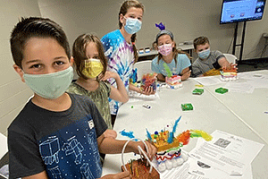Genital warts: Who gets and causes
Who gets genital warts?
Anyone who has sex can get human papillomavirus (HPV), the virus that causes genital warts. At least half of people who have sex have had an HPV infection. It is most common before age 30.
Not everyone who gets an HPV infection gets genital warts. Most people never get these warts because the body’s immune system fights the virus. Most people get rid of the virus in a few years and then are no longer contagious.
People who have a weakened immune system may not be able to fight the virus. When the body cannot fight HPV, genital warts can grow. A person’s immune system can become weak from a disease such as cancer or AIDS. Some medicines, such as those to prevent organ rejection, also weaken the immune system.
Research has found that smokers have a higher risk for getting genital warts than people who do not smoke. It is not clear why.
Sometimes a child gets genital warts. It is rare, but an infected mother can pass the virus to her baby during childbirth. The warts may not show up right away. Genital warts in a child also can be a sign of sexual abuse.
What causes genital warts?
Genital warts spread from a person who has HPV to another person through:
Sex (vaginal, anal, or oral)
Genital contact (people's genitals touch)
Childbirth (from infected mother to baby)
Warts may not appear until weeks or months after sex with an infected person.
 Atopic dermatitis: More FDA-approved treatments
Atopic dermatitis: More FDA-approved treatments
 Biosimilars: 14 FAQs
Biosimilars: 14 FAQs
 How to trim your nails
How to trim your nails
 Relieve uncontrollably itchy skin
Relieve uncontrollably itchy skin
 Fade dark spots
Fade dark spots
 Untreatable razor bumps or acne?
Untreatable razor bumps or acne?
 Tattoo removal
Tattoo removal
 Scar treatment
Scar treatment
 Free materials to help raise skin cancer awareness
Free materials to help raise skin cancer awareness
 Dermatologist-approved lesson plans, activities you can use
Dermatologist-approved lesson plans, activities you can use
 Find a Dermatologist
Find a Dermatologist
 What is a dermatologist?
What is a dermatologist?